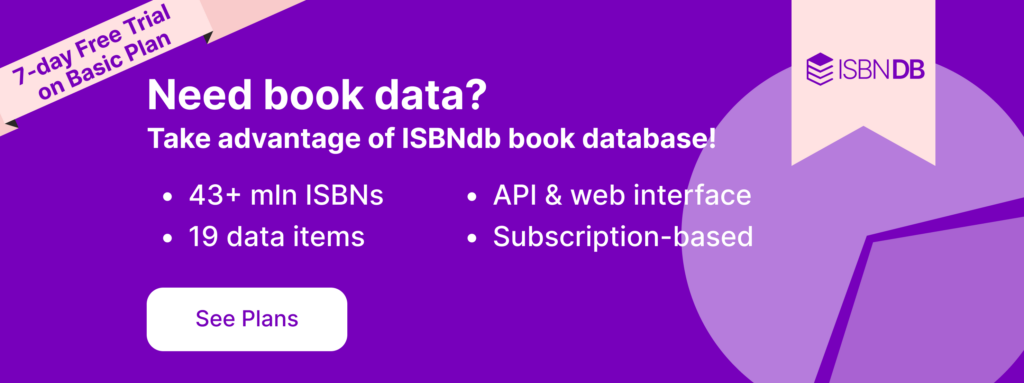
In the past, most of the wealth of our collective knowledge was hidden between the pages of a book. Some of these books, like encyclopedias, were relatively easy to get your hands on, but niche topics or rare tales could be challenging to come by.
Living in the internet age, we have more information at our fingertips than ever before. Books that were once inaccessible to the masses are now able to be identified and purchased at the touch of a few buttons.
Book databases have become a popular way to search even the most elusive titles, with Bowker’s Books In Print being a leading name in book databases. Books In Print offers a sizable bibliographic database for publishers, libraries, and booksellers.
Did you know how many books there are in the world? With an innumerable number of books circulating globally, even the most extensive database struggle to categorize every book. Therefore, Books In Print may not have information on the specific book you are searching for.
Additionally, Books In Print is geared towards large institutions and requires subscription fees that may not be feasible for the individual user or a small startup. Books In Print is far from the only book database, as there are numerous similar services available that may be a better fit for you.
If you are searching for an alternative to Books In Print that checks all of your boxes, these are the five best book databases in 2025 that suit both institutions and individual users alike.
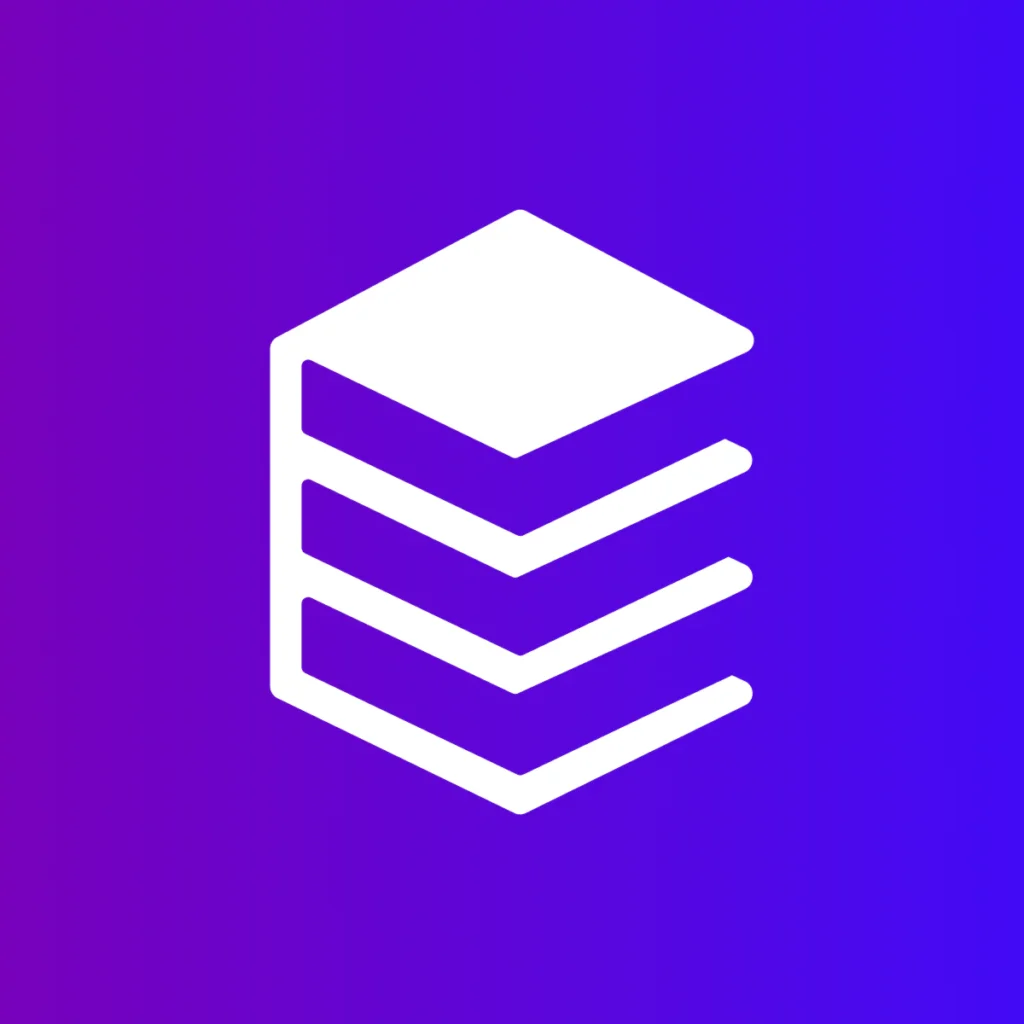 ISBNdb
ISBNdb
The success of a book database largely depends on its size, which makes ISBNdb a fantastic alternative to Books In Print. ISBNdb is currently one of the largest book databases in the world, boasting data on more than 43 million books from over 12 million authors.
As its name suggests, ISBNdb is based on the International Standard Book Number system, which allows you to search and categorize books worldwide using a simple 10 or 13-digit number.
ISBNdb is a paid platform, but it offers multiple subscription tiers that range from $14.95 for the basic package to $74.95 for the pro package. For organizations that work on an especially large scale, ISBNdb offers custom-tailored corporate subscriptions.
Even better, ISBNdb offers generous discounts for those working in the academic or non-profit spheres, allowing you to access the entirety of its database for less than $10 per month.
Due to its flexible options and comprehensive scope that can be personalized to your needs, ISBNdb has more than earned its spot on this list.
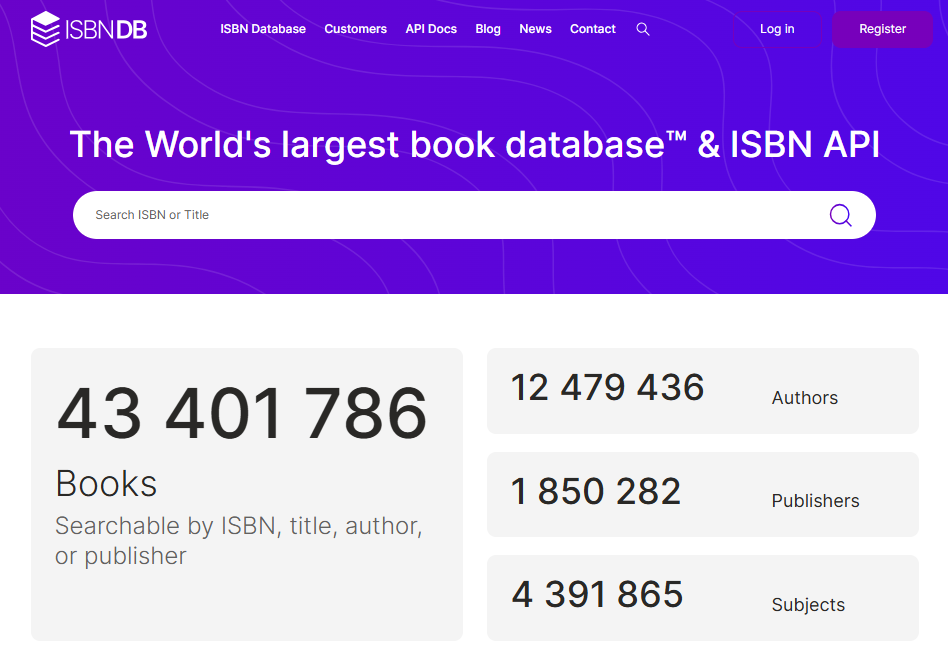
 Amazon Books
Amazon Books
Surprisingly enough, some of the best modern book databases weren’t originally designed to be databases at all. E-commerce behemoth Amazon originally began its operations as an online bookseller in 1995. Since then, the marketplace has expanded but has stayed true to its roots. It currently boasts one of the most massive databases of books that are immediately available for purchase.
Amazon Books is one of the best ways to search for books as an individual looking to purchase their newest read. The platform also features several titles that may not be included on other databases, as Amazon frequently hosts self-published novels of all types.
Amazon’s emphasis on commerce makes it challenging to locate rare titles. Niche topics, limited presses, and first editions will not be easy to find on the platform.
However, Amazon’s true database—not just its storefront—is hidden behind its Product Advertising API, which requires you to register as an Amazon affiliate partner, which is not feasible for most individuals.
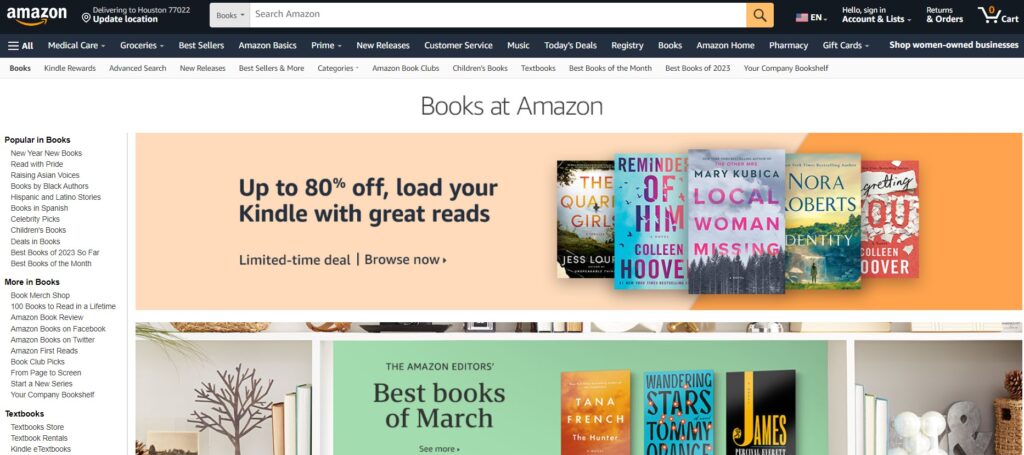
 OpenLibrary
OpenLibrary
OpenLibrary is a unique entry on our list due to its mission: to ensure that information on every book ever published is available to the public for free. Like Wikipedia, it relies on volunteers and users to add, categorize, and input data on the platform.
A project from the non-profit Internet Archive, OpenLibrary, is growing every day and currently boasts millions of entries. Though users do their best to ensure that all documented information is correct, volunteers are human, and there may be some mistakes.
We love OpenLibrary because it’s totally free to use—you can even borrow ebooks through the site—making it an excellent option for individual readers and a fantastic volunteer opportunity for book lovers. However, it may not be the best platform for large bookselling or library enterprises.
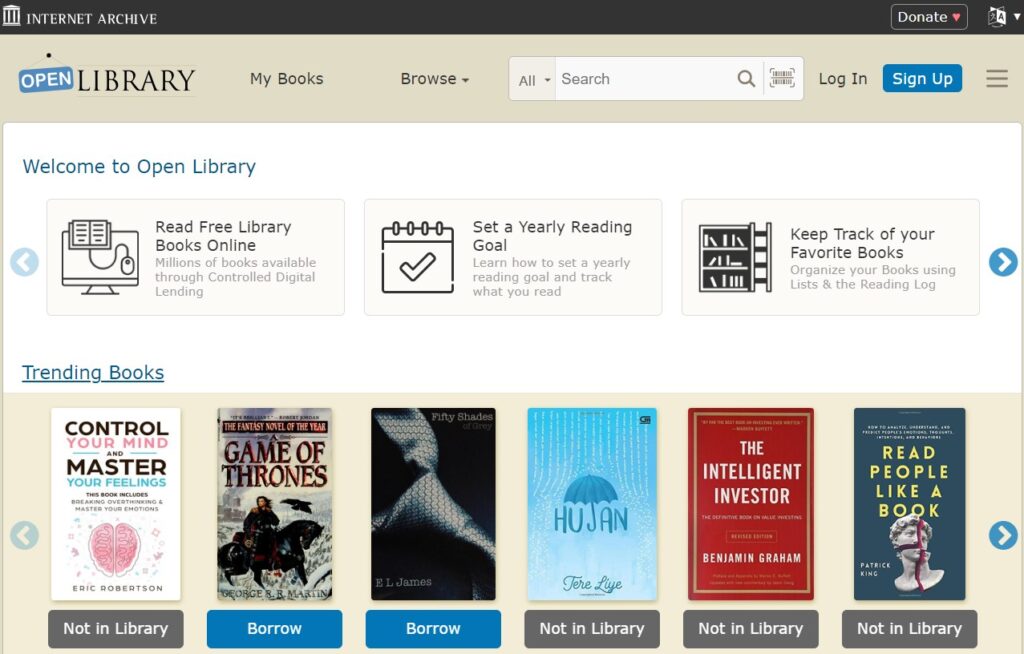
 Google Books
Google Books
Like many of the search engine’s offshoots, Google Books is a solid choice when hunting for the perfect book. The search function reveals a significant amount of information on your chosen title, but like Amazon Books, Google Books requires a bit more work to access the entire database, and even then, you may run into some restrictions.
Through the platform’s Google Books API, you can apply to receive access to the massive database. This will yield more information than the typical search function, but you may still run into restrictions that require additional effort to bypass.
Google’s crawlers generate this information by accessing data across the web, but unfortunately, the data found may not always be 100% correct.
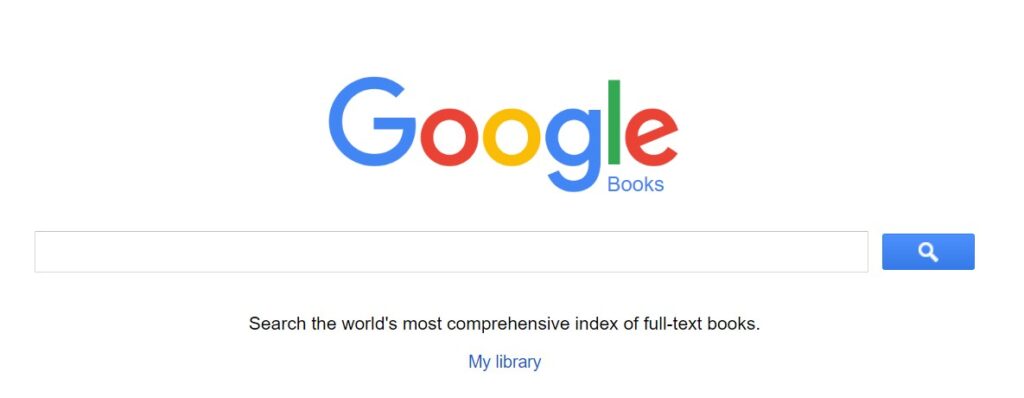
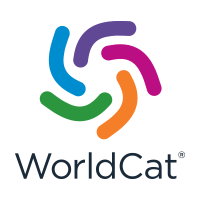 WorldCat
WorldCat
WorldCat is a database made for libraries by librarians. Featuring over a billion entries on books, articles, musical scores, maps, sound recordings, and even academic theses and dissertations, WorldCat compiles information from libraries around the world.
Though WorldCat is designed with the library in mind, it is a fantastic resource for finding library materials near you. With a simple search, you can find titles in your local library’s collection and even check out or place holds on materials.
WorldCat may not be the best database for booksellers, but it is a perfect platform for libraries and reading enthusiasts.
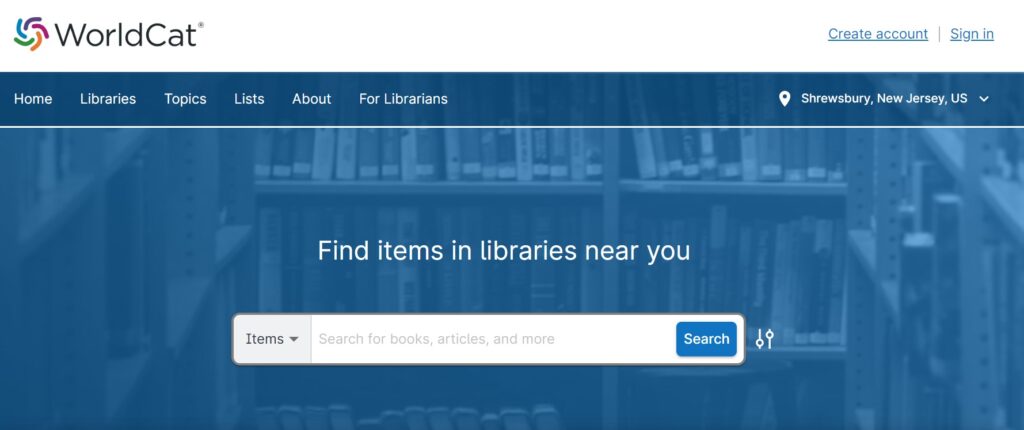
To learn more about book databases and how to retrieve book data via ISBN number, feel free to read our guide on book databases.


